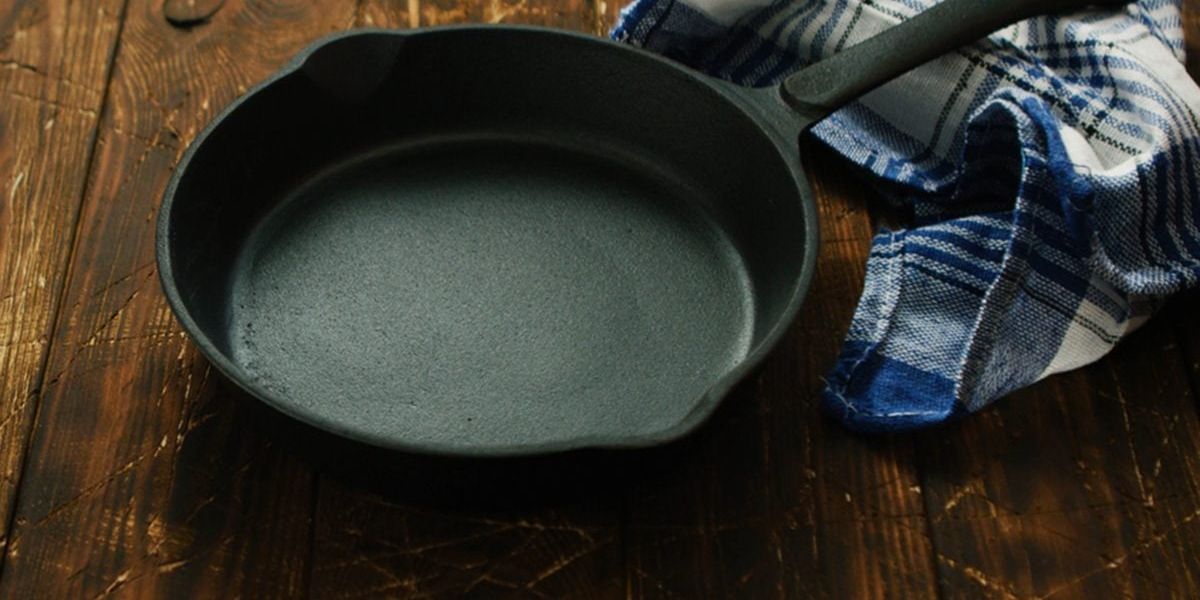MJP –
Are you up-to-date on your cast-iron know-how? To be sure, not a lot has changed if you haven’t brushed up on the topic in a few decades—perhaps only that many new pans come pre-seasoned.
But if your cast-iron knowledge wasn’t passed down along with your skillet (lucky you if you find yourself in possession of a true heirloom), we’re here to enlighten. We’ve already uncovered the great myths surrounding our favorite cooking tool and yours, but now we’re taking it a step further with the things that no self-respecting Southerner ever cooks in cast iron.
Before your jaw hits the ground, know that there are some important caveats
Acidic foods (unless you make it snappy)
You might have heard that cooking acidic foods in your cast-iron skillet is a big no-no. Turns out, that’s just not the case.
Acidic foods (like tomato sauce, wine-braised meats, etc.) enter the red zone when they spend too much time cooking in the skillet. It’s particularly important to not marinate anything in a cast-iron pan, as many marinades are quite acidic in order to tenderize the meat.
Plus, storing food in your cast iron is generally not advised as you want to keep it as dry as possible in between uses to prevent rust. This means you can’t just pop foil over the top of the pan and put it in the fridge when done cooking. They invented Tupperware for a reason.
So what happens if you accidentally let your acid-heavy sauce simmer sit too long in a cast -iron pan? The sauce could take on a metallic taste or start to break down the seasoning on your skillet. Either way, they’re scenarios any cook would be wise to avoid.
Fish (particularly delicate varieties)

This one likely comes as no surprise, but fish, particularly thin or delicate varieties, is not well-suited for your cast iron. Even if you’re lucky enough to flip your fillets without incident, chances are the skin will not make it through the process.
Unless your pan is very well seasoned, stick to your nonstick fry pan or oven for the best results.
Eggs
If your pan is not well-seasoned, scrambling eggs in it is going to be a bit of a mess. Not only will they stick like crazy, but after you pry the eggs from the pan, cleanup will be a nightmare.
Yes, a well-seasoned skillet should be virtually nonstick, but when was the last time you seasoned your pan?
While we want cast-iron skillets to be the best tool for every job, that’s not always the case. There are many things you could make in a cast-iron pan, but that doesn’t mean it’s the best way.
Like eggs, grains are a good example of this. While you could make rice in your cast-iron skillet, it’s a fairly shallow pan and it doesn’t come with a lid. You’re better off making rice in a regular pot, just as you’re better off making eggs in a nonstick skillet.
Now making a rice casserole in a skillet, well, that’s a different story.
Skillet brownies (if you just fried a batch of chicken last night)
Many a Southerner might argue that cast iron is the true do-it-all pan, going from main dish to dessert cooking without giving you a second thought—but maybe it’s worth taking a pause.
Your cast iron will retain a bit of flavor from the foods cooked in it, which is all part of the seasoning process. This doesn’t mean you should skip the desserts, though.
If you want to go from frying chicken to baking up a batch of skillet brownies without too much of a savory carry-over, just take extra care in cleaning between foods. If your skillet is well-seasoned, all it should need is a good scrub.
And yes, you can safely use soap to clean your cast-iron pan and remove the flavors of your last cooking project without damaging it, we promise!
A lot more (if your skillet isn’t properly seasoned)
If your skillet is not properly seasoned and you’re attempting to cook just about anything, we’re going to go ahead and stop you right there. Do not pass go, do not collect $200, and we’re also revoking your Southern license to cook. You can have it back when you start to make better choices.
Cooking on unseasoned cast iron can result in sticking, rusting, and a myriad of other issues (some of which are outlined above). Lucky for cast-iron newbies, most skillets sold these days come pre-seasoned. Take your store-bought seasoning a step further though and add your own before you call it good to go.




